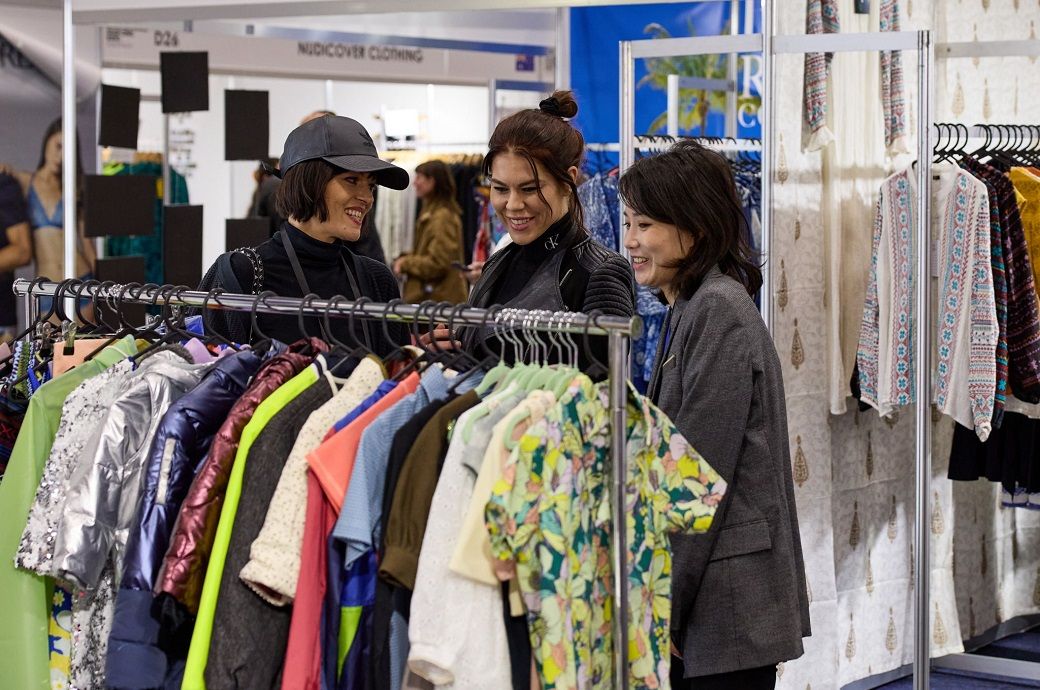
The Global Sourcing Expo has attracted exhibitors from 13 countries, many of whom, like the Textile Export Promotion Council, prioritise sustainable production processes and materials to create high-quality and long-lasting garments. At the event, AFC project director Danielle Kent will lead a Global Sourcing Seminar panel on how the scheme will provide a roadmap to circularity in Australia by 2030, organiser International Exhibition & Conference Group said in a press release.
“As the long-time organisers of Australia’s premier international sourcing exhibition, we are all too aware of the dangers of fast fashion on both an economic and environmental level,” explained Marie Kinsella, CEO, International Exhibition & Conference Group. “We are thrilled to have the AFC, alongside other fashion industry leaders, as part of the Global Sourcing Seminar speaker line-up for their ability to highlight the critical need for sustainable production and sourcing practices. We look forward to the robust conversations around this topic as we all work together to create a more sustainable future for fashion.”
The AFC has estimated that on average, Australians purchase 56 items of clothing a year, the majority of which are made from non-sustainable materials. The issue is worsened by the fact that Australia has no organised system for the collection of unwearable clothing, and minimal resources for the recycling of clothing and textiles.
‘Fast’ fashion may be the single biggest threat the Australian fashion industry has faced in decades— and its impact on the environment could be devastating.
To quote British fashion designer Patrick Grant, “We have enough clothing on the planet right now to dress the next six generations of the human race.” And yet, consumers across the globe are continuing to purchase cheap and poorly-made garments at an astronomical rate as part of the constant quest to stay ‘on-trend.’
As a result of Australia’s inadequate resources to aid in the recycling and clothing of textiles, clothing waste has become one of the largest contributors to the country’s waste problem. The AFC estimated that more than 200,000 tonnes of clothing and textiles end up in landfills every year. This dilemma is what led the AFC to create the National Clothing Product Stewardship Scheme.
“Fast fashion is a huge contributor to this issue, as these brands rely on cheap and low-quality materials that fall apart after a few wears and are then discarded,” added Kinsella. “The industry is also characterised by fast production and consumption cycles, resulting in the excessive use of natural resources, high energy consumption, and pollution via microplastics.”
Unfortunately, the harmful impact of fast fashion is not limited to the environment as the industry is also notorious for exploiting cheap labour in developing countries. To continue offering clothing at an extremely low price point, brands seek out low-cost production by paying workers low wages and subjecting them to unsafe working conditions.
These workers are predominantly women and in the worst cases, children, who are forced to work for long hours as their well-being is compromised for the sake of cheap and fast production.
“In many cases, these unsafe working conditions result in human rights violations as workers are exploited and the cycle of poverty continues,” commented Kinsella. “That is the true cost of fast fashion. The rise of fast fashion is linked to the larger social issue of a modern ‘disposable culture’.
“More and more, we’re seeing garments being quickly discarded and replaced as part of a mindset that encourages overconsumption. While we are in no way opposed to consumers exercising their freedom to purchase what they like, we advocate for a more considered and sustainable approach to reduce waste.”
“One of the biggest priorities of the 2023 Global Sourcing Expo is promoting transparency and accountability throughout the international sourcing supply chain,” said Kinsella. “Our exhibitors are a testament to this commitment, as is the high number of sustainability-focused seminars in our Global Sourcing Seminar programme.”
And while she acknowledged that Australia still has a long way to go in the fight against fast fashion, Kinsella commented that the industry has observed a noticeable shift in consumers prioritising ethically made products.
“The conscious consumerism mindset is definitely spreading, and many buyers are seeking accountability for whether or not the clothes they purchase were produced under ethical and sustainable conditions. We look forward to engaging with buyers, suppliers, and industry experts in the Global Sourcing Expo in July and continuing this important conversation,” she concluded.
Fibre2Fashion News Desk (NB)